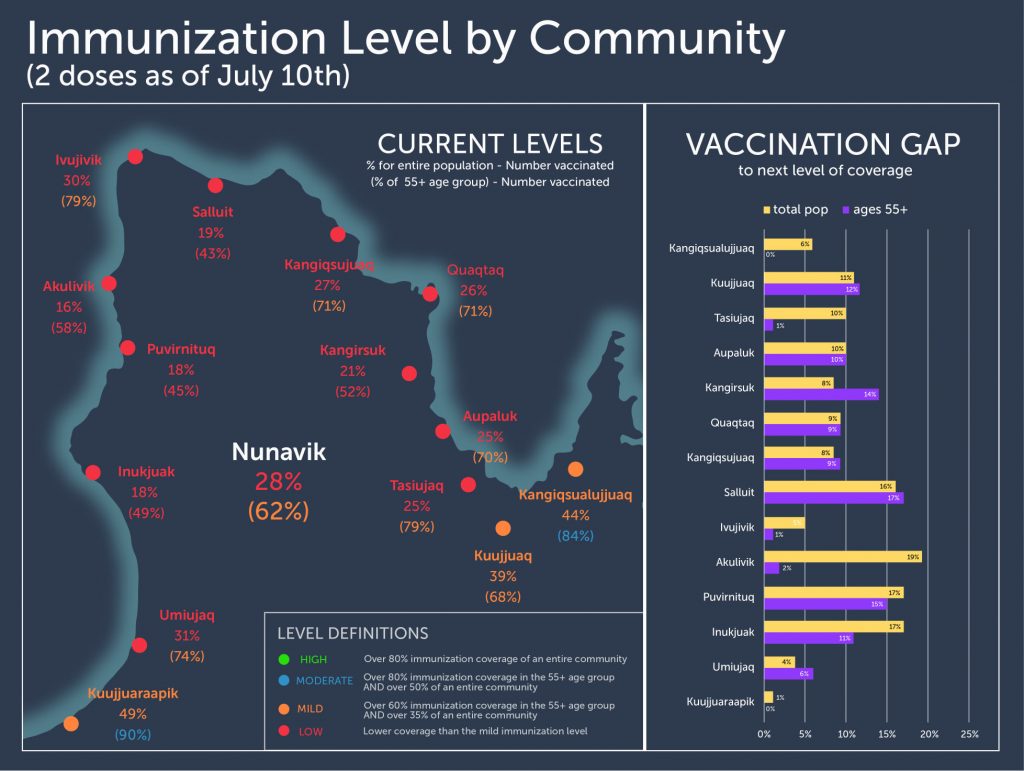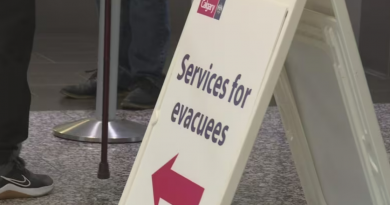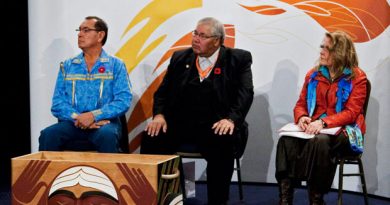Inuit region of Arctic Quebec to adopt provincial COVID-19 passport

Nunavik, the Inuit region of Arctic Quebec, has decided to go ahead and adopt the provincial COVID-19 vaccination passport, the regional health board said on Thursday.
The Quebec government announced August 5 it would introduce vaccination passports for access to non-essential services like gyms, bars and restaurants across the province. It comes into effect on September 1.
It will also be required to participate in many sports.
Nunavik spans the entirety of Arctic Quebec and is made up of 14 fly-in only communities made up of a few hundred people each. Because of this, and the limited health infrastructure with the North, the pandemic response is managed separately from the rest of the province.
The Nunavik Regional Board of Health and Social Services (NRBHSS) has been studying whether to adopt the vaccination passport system since the provincial announcement.
No passport needed for grocery stores or nursing stations
No one from NRBHSS was immediately available for comment on the factors that led to their decision, but in a Facebook post they said the new policy would come into effect with the rest of the province next Wednesday.
The system will apply to anyone age 13 and over. People will need to provide both ID as well as proof of vaccination. Proof can either be provided by a vaccination certificate or on the VaxiCode app.
Vaccination passports will not be required to access grocery stores or health care services.

Nunavik’s vaccination rate remains low compared to elsewhere in Quebec.
The latest vaccination numbers for Nunavik were released on August 5 and showed that only 28 per cent of people were fully vaccinated as of July 10.
As of Thursday, Quebec was reporting 67.53 per cent of its total population was fully vaccinated.
Nunavik has a population of approximately 13,000 people
Write to Eilís Quinn at eilis.quinn(at)cbc.ca
Related stories from around the North:
Canada: COVID-19 state of emergency ends in Canada’s northwestern Yukon territory, CBC News
Finland: Berry firms moved harvesters from Lapland to East Finland even if exposed to, infected with COVID-19, Yle News



